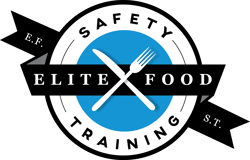Discover the distinctions between ServSafe courses and City certifications to make an informed choice.
Understanding ServSafe Certification
When it comes to food safety certifications, one of the most well-known options is ServSafe. Understanding what this certification entails is crucial before making a decision. ServSafe is a training program developed by the National Restaurant Association that focuses on food safety and sanitation practices. It is designed to educate individuals working in the food service industry about proper handling and preparation of food to prevent foodborne illnesses. The certification covers various topics such as personal hygiene, cleaning and sanitizing, safe food handling, and allergen awareness. By obtaining a ServSafe certification, individuals can demonstrate their commitment to maintaining high standards of food safety.
Another key aspect of ServSafe certification is that it is recognized nationwide. This means that the certification is accepted and respected by employers and regulatory agencies across the country. Whether you're working in a restaurant, hotel, catering business, or any other food service establishment, having a ServSafe certification can enhance your employability and open up more opportunities for advancement.
Exploring City Certification Programs
In addition to ServSafe, many cities offer their own certification programs for food safety. These city certifications are often specific to the local health department's regulations and requirements. While the details may vary from one city to another, the goal remains the same - to ensure that food establishments comply with the necessary health and safety standards.
While these classes tend to have the same objective behind them, the city certification do not hold weight outside of their respective jurisdictions.
Most importantly, City Certification Programs are not valid for 5 years (like ServSafe) even though their pricing is quite similar.
Comparing Course Content and Requirements
When comparing ServSafe courses with city certification programs, it's important to consider the course content and requirements. ServSafe offers a comprehensive curriculum that covers all aspects of food safety, including topics such as time and temperature control, preventing cross-contamination, cleaning and sanitizing, and HACCP principles. The course materials are regularly updated to reflect the latest industry standards and regulations.
On the other hand, city certification programs may have a narrower focus and may be more specific to the local regulations. The content and requirements can vary depending on the city, so it's essential to research and understand what each program entails. Some cities may require additional training or exams beyond the basic food safety knowledge.
Evaluating Accreditation and Recognition
Accreditation and recognition are important factors to consider when choosing a food safety certification. ServSafe is accredited by the American National Standards Institute (ANSI), which is a widely recognized accreditation body. This accreditation ensures that the certification program meets rigorous standards and is independently evaluated for its quality and effectiveness.
In terms of recognition, ServSafe is highly regarded in the food service industry. Many employers require or prefer candidates with a ServSafe certification, as it demonstrates their knowledge and commitment to food safety. Additionally, regulatory agencies and health departments across the country recognize ServSafe as a reputable certification.
When evaluating city certification programs, it's important to research the accreditation and recognition specific to each program. Some city certifications may also be accredited by ANSI or other reputable organizations. It's essential to choose a certification that is widely recognized and respected within the industry and by potential employers.
Maximizing the Benefits of Your Certification
Once you have obtained a food safety certification, whether it's ServSafe or a city certification, it's important to maximize its benefits. Here are a few tips to make the most out of your certification:
1. Stay updated: Keep yourself informed about the latest food safety regulations and industry best practices. Attend seminars, workshops, and webinars to expand your knowledge and stay current.
2. Implement what you've learned: Apply the principles and practices you have learned during your certification training in your work environment. This will not only ensure compliance but also contribute to a safe and healthy food service operation.
3. Promote your certification: Highlight your certification on your resume, LinkedIn profile, and job applications. This will make you stand out to potential employers and show your dedication to food safety.
4. Seek continuous learning: Consider pursuing advanced food safety certifications or additional training courses to further enhance your knowledge and skills.
By following these tips, you can leverage your certification to advance your career and make a positive impact in the food service industry.

.png)
.png)
-2.png)
-2.png)
.jpg)
